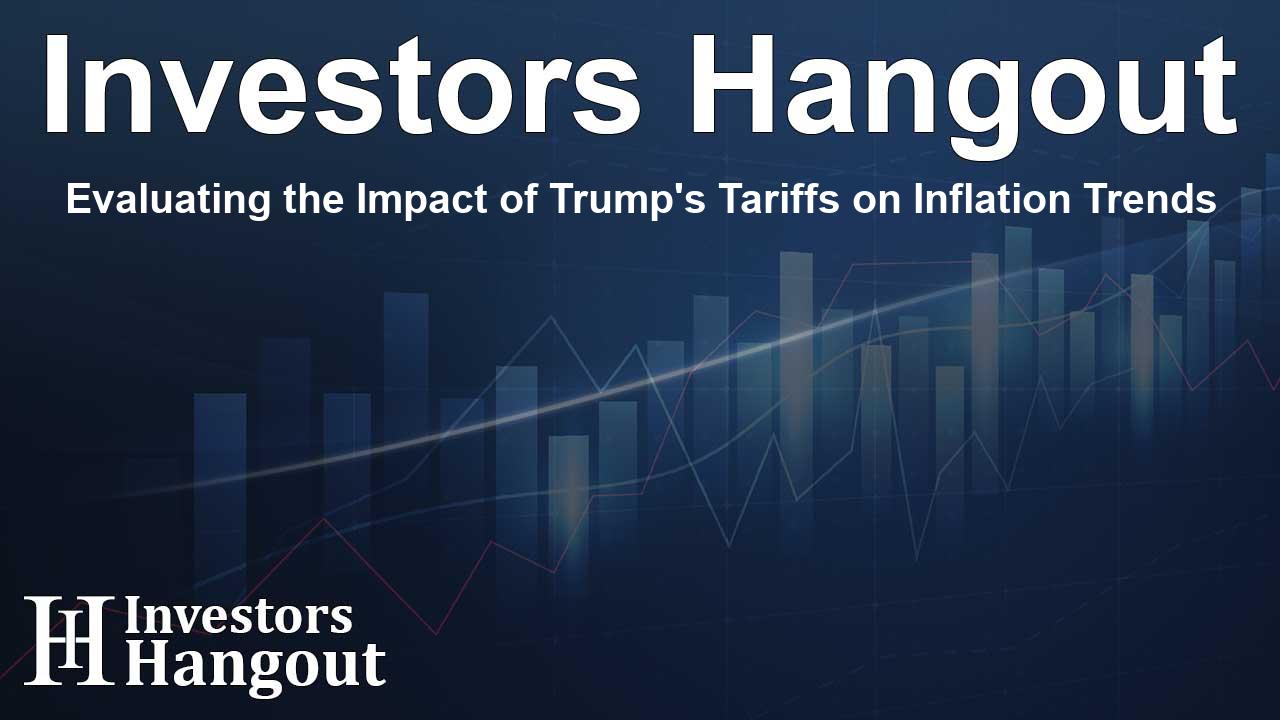Evaluating the Impact of Trump's Tariffs on Inflation Trends

Exploring the Effects of Trump's Tariffs on Inflation
When Donald Trump took office, he asserted strong plans to reconfigure economic policies that could reshape the landscape of US trade and inflation. His approach is characterized by a blend of boldness and controversy, promising significant changes that have elicited varied reactions.
One of the principal strategies during his presidency involves imposing tariffs, particularly targeting trade with major partners such as Canada and Mexico. Trump has hinted at initiating a 25% tariff starting soon, although this has been postponed from his earlier declaration of immediate action.
While addressing reporters, Trump did not shy away from expressing the possibility of broad tariffs on all imports, although he indicated that such measures were not yet ready for implementation. His indecision on escalating tariffs against China remains notable, as he has opted for an administrative review to assess compliance with previous agreements.
In his inaugural address, Trump vowed to rally his entire cabinet to combat record inflation and stabilize the economy, conveying a proactive stance towards economic management. Though inflation rates have seen significant reductions over the last couple of years, recent trends indicate persistent levels that remain higher than the Federal Reserve’s benchmark.
This raises critical questions about whether increasing tariffs could serve as an effective mechanism in the fight against inflation or if they would yield the opposite effect. The forthcoming adjustments in tariff policies could inadvertently complicate efforts to lower consumer prices.
Expert Opinions on Tariffs and Inflation
Recent analysis from industry experts, including UBS CEO Sergio Ermotti, suggests skepticism towards the efficacy of tariffs in alleviating inflation. He points out that the anticipated benefits may not materialize, implying a longer duration for interest rates to decrease than many expect.
Consumer Sentiment and Economic Implications
The perspectives of consumers resonate with Ermotti’s insights. Research from the University of Michigan's consumer sentiment survey indicates a widespread belief that tariffs would ultimately inflate costs for households. According to economist Oliver Allen from Pantheon Macroeconomics, survey data showcases clear expectations from consumers regarding price hikes triggered by the tariffs Trump has proposed.
LPL's chief economist further elaborates that taxes from tariffs produce a deadweight loss within the economy, hurting both businesses and consumers alike. As tariff implementation tends to restrict employment opportunities, the adverse ramifications may also provoke retaliatory measures from international partners.
The Economic Logic Behind Tariffs
Scott Lincicome of the Cato Institute provides an important perspective, critiquing the notion that tariffs will yield positive outcomes. He emphasizes the underlying economic principles that suggest protective tariffs inherently lead to increased prices for US consumers. If tariffs did not raise import prices, the logic follows, there would be no necessity to protect domestic companies through such measures.
Energy Production and Its Impact
Trump's strategy also involves boosting domestic energy production, which he labels a “national energy emergency”. His rallying call to “drill, baby, drill” seeks to maximize the US's capabilities in oil and gas production, with the intent to lower energy costs and, subsequently, inflation.
However, the current state posits that the US is already a leading oil producer, raising questions regarding how increased production could effectively decrease energy rates. Notably, analysts highlight the potential oversupply of oil and gas as a counterpoint to the narrative of lowering inflation through increased energy output.
Anticipating Changes in Economic Policy
As we move forward, it becomes apparent that significant economic shifts are underway. While it remains uncertain how Trump’s strategic modifications will ultimately influence inflation, the dawn of Trump 2.0 indicates a departure from traditional norms. The forthcoming policies seek to address economic disparities, though their efficacy remains a topic of substantial debate.
Frequently Asked Questions
What are the proposed tariffs by Trump?
Trump has proposed 25% tariffs on imports from Canada and Mexico, among other potential measures affecting various trade partners.
How might tariffs affect inflation?
Experts warn that tariffs may increase consumer prices, leading to higher inflation rather than alleviating it.
What do consumers think about tariffs?
Consumer sentiment surveys indicate that many believe tariffs will lead to price hikes on essential goods.
What is a deadweight loss in economics?
Deadweight loss refers to the economic inefficiency that occurs when equilibrium for a good or service is not achieved, often due to taxes such as tariffs.
How is Trump addressing energy production?
Trump aims to enhance US energy production by declaring a national energy emergency and advocating for increased oil and gas drilling.
About The Author
Contact Dominic Sanders privately here. Or send an email with ATTN: Dominic Sanders as the subject to contact@investorshangout.com.
About Investors Hangout
Investors Hangout is a leading online stock forum for financial discussion and learning, offering a wide range of free tools and resources. It draws in traders of all levels, who exchange market knowledge, investigate trading tactics, and keep an eye on industry developments in real time. Featuring financial articles, stock message boards, quotes, charts, company profiles, and live news updates. Through cooperative learning and a wealth of informational resources, it helps users from novices creating their first portfolios to experts honing their techniques. Join Investors Hangout today: https://investorshangout.com/
The content of this article is based on factual, publicly available information and does not represent legal, financial, or investment advice. Investors Hangout does not offer financial advice, and the author is not a licensed financial advisor. Consult a qualified advisor before making any financial or investment decisions based on this article. This article should not be considered advice to purchase, sell, or hold any securities or other investments. If any of the material provided here is inaccurate, please contact us for corrections.
